The Difference Between NC and CNC Machines: Definitions, Types, And Applications
Manufacturers face challenges in precision, efficiency, and automation. Choosing the right machine impacts productivity and cost. Understanding the differences between NC and CNC machines is crucial for optimizing industrial processes.
NC and CNC machines are essential in modern manufacturing, improving accuracy and efficiency. NC machines follow pre-set instructions, while CNC machines use computer programming for greater flexibility and automation. Knowing their differences helps industries select the best technology for their needs.
Let’s explore their definitions, types, applications, and how they impact modern manufacturing.
What is an NC Machine?
An NC machine is a manufacturing tool that operates based on pre-set instructions stored on punched tape or magnetic tape. Unlike manual machines, it follows a fixed program, enabling precise and repetitive machining without direct human intervention.
The evolution of NC machines began in the mid-20th century as industries sought greater efficiency and accuracy. By minimizing manual input, these machines improved repeatability and reliability, laying the foundation for modern automated machining.
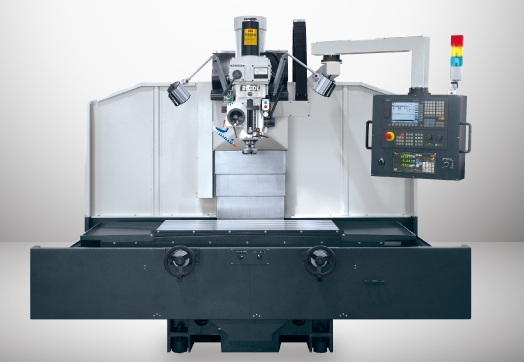
What is a CNC Machine?
A CNC machine is an advanced, computer-controlled manufacturing tool designed for precision machining. Unlike traditional manually operated machines, CNC systems follow pre-programmed instructions to cut, drill, mill, or shape materials with minimal human intervention. This automation enhances efficiency, consistency, and scalability across various industries, including aerospace, automotive, and medical device manufacturing.
CNC machines offer numerous benefits over traditional and NC machines. Their automated control system enables the execution of highly complex machining operations with minimal supervision, improving productivity. Additionally, CNC systems integrate seamlessly with CAD and CAM software, allowing engineers to design intricate components with precision. The use of high-speed, automated cutting tools also reduces material waste and production costs.
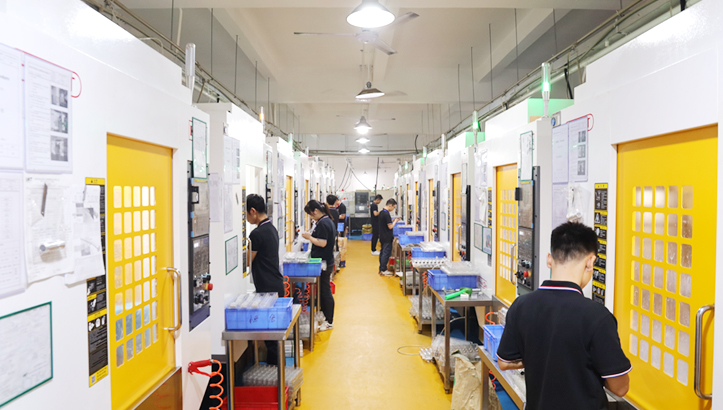
Types and Applications of NC Machines
Different types of NC machine tools are used in various industrial applications, each designed for specific machining tasks. The following table outlines the most common NC machines and their applications.
| NC Machine Type | Description | Common Applications |
| NC Lathes | Used for machining cylindrical parts by rotating the workpiece against a cutting tool. | Shaft manufacturing, automotive components, aerospace parts. |
| NC Milling Machines | Suitable for cutting and shaping surfaces using rotary cutting tools. | Mold making, prototype development, precision component manufacturing. |
| NC Drilling Machines | Designed for hole-making operations with high accuracy. | PCB drilling, metal fabrication, industrial assembly. |
| Small-Batch Production | Ideal for producing limited quantities of parts with consistent quality. | Prototyping, custom component manufacturing. |
| Manufacturing Simple Components | Used for machining basic shapes and structures efficiently. | Standardized industrial parts, mechanical fittings. |
| Performing Repetitive Tasks | Suitable for mass-producing standardized parts with minimal variation. | High-volume production lines, automated manufacturing. |
How Has The Birth of NC Affected The Birth of Manufacturing?
The birth of Numerical Control has profoundly impacted manufacturing by introducing automated control, allowing machines to operate with precision and minimal human intervention. This advancement significantly improved production accuracy and efficiency.
NC technology revolutionized mass production. Traditional manual manufacturing was time-consuming and error-prone, whereas NC machines enabled continuous processing, ensuring product consistency while reducing material waste and production costs.
NC laid the foundation for Computer Numerical Control, leading to the era of intelligent and flexible manufacturing. Today, from automotive to aerospace industries, NC technology remains a crucial pillar of modern manufacturing.
Advantages and Limitations of NC Machines
NC machines revolutionized the manufacturing industry by automating certain manual tasks, making processes more efficient. Although NC machines have been largely replaced by CNC machines in many modern applications, they still offer certain advantages, particularly in simpler and more repetitive manufacturing tasks. Below are the advantages and limitations of NC machines.
Advantages of NC Machines
NC machines have their strengths, especially in environments where simplicity and repetitive tasks are key to productivity. Below are the main advantages of using NC machines:
1. Lower Initial Cost:
One of the primary advantages of NC machines is their lower initial cost compared to CNC machines. The simpler technology and reduced need for advanced software or components make NC machines more affordable for small to mid-sized manufacturers.
2. Simplicity and Ease of Operation:
NC machines are easier to operate for basic tasks because they require fewer specialized skills. The manual nature of their setup and programming means that operators can quickly learn how to use them for specific, repetitive tasks without requiring in-depth training.
3. Durability and Longevity:
Because NC machines are less complex and rely more on mechanical components than electronic ones, they tend to be more durable and have a longer lifespan. Their mechanical simplicity reduces the likelihood of breakdowns and hardware failures, making them reliable for extended periods of time.
4. Reduced Labor Costs for Simple Tasks:
While NC machines still require some manual intervention, they reduce the need for labor compared to fully manual processes. Operators can set up the machine and allow it to run continuously for repetitive tasks, freeing up time for workers to focus on other responsibilities.
Limitations of NC Machines
Despite their advantages, NC machines have significant limitations that restrict their use in more advanced manufacturing environments. These limitations include:
1. Limited Flexibility:
NC machines are designed for fixed operations, and any change in the process, part design, or task requires manual reprogramming and machine setup. This lack of flexibility makes them unsuitable for environments that demand quick adaptation to new or custom designs.
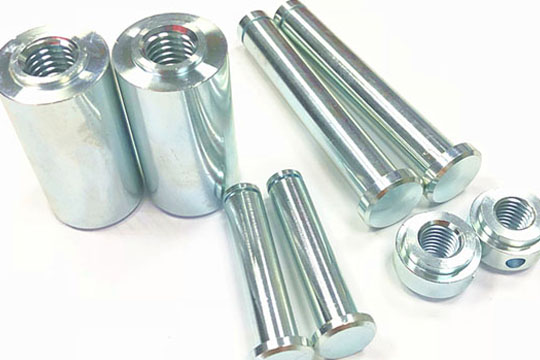
2. Manual Intervention Required:
Unlike CNC machines, which can be automated and controlled by computers, NC machines require more human involvement for adjustments, tool changes, and programming. This reliance on manual setup and monitoring increases the likelihood of human error and slows down production.
3. Lower Precision and Accuracy:
NC machines cannot adapt to minor variations in the process or compensate for errors automatically. Their fixed programming and reliance on basic control mechanisms make them less accurate than CNC machines, which can adjust in real-time to ensure high precision.
4. Time-Consuming Setup and Reprogramming:
Whenever there is a change in the design or a new part needs to be produced, the reprogramming and setup of an NC machine can be time-consuming. The process of modifying the instructions on tape or manually adjusting settings adds considerable downtime between production runs.
Types and Applications of CNC Machines
CNC machines are essential in modern manufacturing, offering high precision, efficiency, and automation. They are used across various industries for different applications. The table below provides an overview of common CNC machines and their industrial uses.
| CNC Machine Type | Application | Industries |
|---|---|---|
| CNC Lathes | High-precision machining of cylindrical parts | Aerospace, Automotive, Medical |
| CNC Milling Machines | Contouring and shaping complex geometries | Aerospace, Automotive, Electronics |
| CNC Laser Cutting Machines | High-accuracy cutting of metals and plastics | Automotive, Electronics, Medical |
| CNC EDM (Electrical Discharge Machining) | Processing hard materials | Aerospace, Automotive, Medical |
| CNC 3D Printers | Rapid prototyping and mass customization | Aerospace, Medical, Electronics |
Advantages and Limitations of CNC Machines
CNC machines have revolutionized modern manufacturing, offering a significant improvement over earlier technologies like NC machines. They are capable of performing complex, precise tasks with high efficiency and minimal human intervention. However, like any technology, CNC machines come with their own set of advantages and limitations.
Advantages of CNC Machines
CNC machines have a range of benefits that make them indispensable in today’s manufacturing world. These advantages provide significant value across various industries, from automotive to aerospace to medical device manufacturing.
1. High Precision and Accuracy:
CNC machines are known for their exceptional precision and repeatability. They can produce parts with extremely tight tolerances, ensuring that every part produced is identical. The computer-controlled system can make real-time adjustments to maintain accuracy, which is crucial for industries that require high-precision manufacturing, such as aerospace, medical devices, and electronics.
2. Increased Efficiency and Productivity:
CNC machines operate autonomously with minimal human supervision. This high level of automation allows them to work continuously without breaks, increasing production rates and efficiency. Tasks that once required multiple manual operations can now be performed in a single run, which significantly speeds up the manufacturing process and reduces cycle times.
3. Flexibility and Versatility:
CNC machines can handle a wide variety of tasks, from simple drilling and milling to more complex operations like 3D contouring, threading, and turning. Thanks to software integration, CNC machines can be easily reprogrammed to accommodate different designs, allowing manufacturers to switch between production runs with minimal downtime.
4. Reduced Human Error:
The automation of CNC machines reduces the risk of human error, which is common in manual operations. Since the machine follows a pre-programmed set of instructions, the chance for mistakes during setup, tool changes, or machining is significantly minimized, leading to higher consistency in production.
5. Complex Geometries and Design Flexibility:
CNC machines can produce complex shapes and geometries that would be difficult, if not impossible, to achieve with traditional manual methods. With CAD/CAM software integration, manufacturers can create intricate designs and produce highly detailed parts with precision. This capability is essential for industries that require advanced engineering, such as aerospace and automotive.
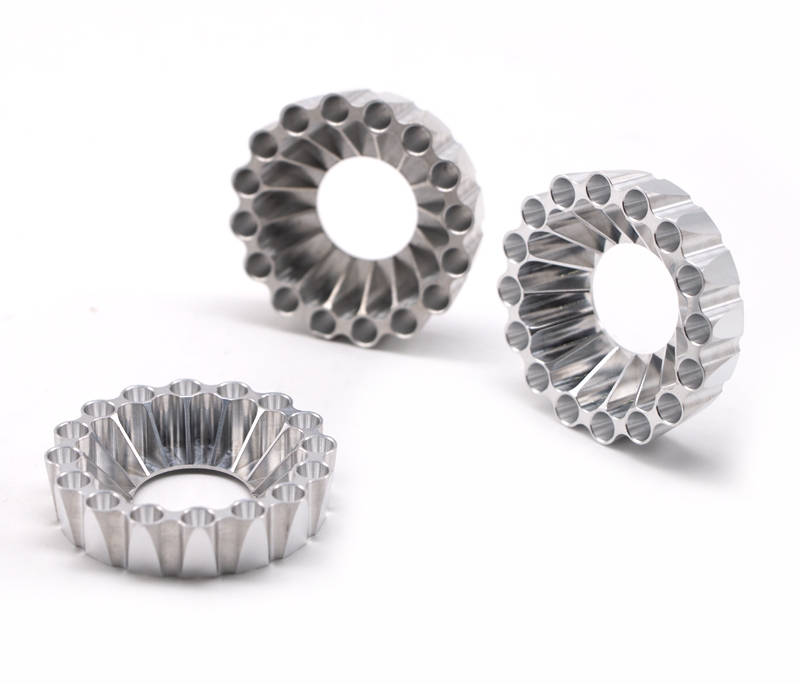
Limitations of CNC Machines
Despite their many advantages, CNC machines do have some limitations that manufacturers must consider when deciding whether to invest in CNC technology.
1. High Initial Cost:
CNC machines require a significant upfront investment. They are more expensive than traditional machines due to their advanced technology, computer systems, and precision components. This high initial cost can be a barrier for smaller manufacturers or startups. Additionally, maintenance and software upgrades can add to the overall cost over time.
2. Complexity and Skill Requirements:
While CNC machines automate many aspects of manufacturing, they still require skilled operators and programmers to set up, operate, and troubleshoot. Operators must have knowledge of CNC programming, machine tools, and computer-aided design or manufacturing software. This requires a skilled workforce and ongoing training, which can be challenging in industries with a shortage of qualified personnel.
Differences Between NC and CNC Machines
NC and CNC machines are both used in automated manufacturing, but they differ in terms of control, automation, and flexibility. NC machines rely on pre-set instructions stored on punched or magnetic tape, whereas CNC machines use advanced computer-based programming for greater precision and adaptability. The table below highlights the key differences between these two technologies.
| Feature | NC Machines | CNC Machines |
|---|---|---|
| Control System | Punched tape/magnetic tape | Computer-based programming |
| Automation Level | Limited | Highly automated |
| Programming | Hardcoded instructions | NC programming with CAD/CAM support |
| Adjustability | Requires manual changes | Easily modifiable via software |
| Application | Suitable for simple and repetitive tasks | Ideal for complex, high-precision manufacturing |
Future Trends in CNC Machining
The integration of AI with CNC automation is revolutionizing precision manufacturing. AI-powered algorithms optimize tool paths, predict maintenance needs, and enhance real-time quality control, leading to higher efficiency and reduced downtime. Machine learning-driven adaptive machining is also making CNC systems smarter and more responsive to production demands.
Advancements in smart manufacturing and IoT-connected CNC systems are shaping the future of Industry 4.0. These innovations enable seamless data exchange, remote monitoring, and predictive analytics for improved operational efficiency. Enhanced CNC applications in engineering are unlocking new possibilities, from ultra-precise aerospace components to fully automated production lines in high-tech industries.
Choosing Between NC and CNC Machines
Factors to consider when selecting between NC and CNC machines:
-
Budget: NC machines have lower initial costs, making them suitable for businesses with limited investment. However, CNC machines, while more expensive upfront, can offer better long-term value due to automation and efficiency.
-
Production Scale: CNC machines provide greater scalability as they can handle complex, high-volume production with minimal manual intervention. NC machines, on the other hand, are more suited for simpler, lower-volume tasks that require manual programming adjustments.
-
Precision Requirements: CNC machines offer superior accuracy and consistency, as they are computer-controlled and capable of executing highly intricate designs with minimal error. NC machines, while still precise, depend more on manual operation and may have slight variations in output.
More Resources: What Is a CNC Machine and How It Works?
Top 10 CNC Machines: A Comprehensive Guide
Start CNC Machining at VMT
VMT is your trusted partner for CNC machining services. With over 15 years of experience, we specialize in custom machining solutions for industries such as automotive, medical, optical and electronics. Our 100+ advanced CNC machines ensure exceptional accuracy, consistency and efficiency, meeting the highest industry standards.
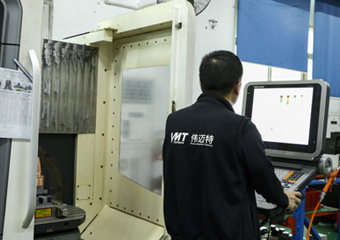
In Conclusion
Understanding what is CNC machinery and NC machine tools helps industries make informed decisions. The evolution of NC and CNC machine technology continues to revolutionize modern manufacturing, paving the way for increased efficiency and automation in the future.
Frequently Asked Questions About NC and CNC Machines
In NC/CNC machines, what is the importance and role of the machine operator?
The machine operator plays a crucial role in setting up, monitoring, and maintaining NC/CNC machines. They load materials, input programs, ensure tool alignment, and oversee quality control. Although CNC machines automate cutting and shaping, operators handle troubleshooting, adjustments, and routine maintenance to ensure precision and efficiency.
Are there any limitations to using NC or CNC machines?
Yes, NC/CNC machines have limitations, such as high initial costs, complex programming requirements, and the need for skilled operators. They also require regular maintenance and can be less efficient for small, custom jobs due to setup time. Additionally, power failures or software glitches may disrupt operations.
What is the difference between computer numerical control and direct numerical control?
CNC machines have built-in computers to control operations independently. DNC systems, on the other hand, connect multiple machines to a central computer, which sends real-time instructions. DNC allows centralized control, while CNC machines operate autonomously with preloaded programs.
What is the difference between a CNC machine and a conventional machine?
CNC machines use automated, computer-controlled movements for precision, while conventional machines rely on manual operation. CNC machines offer higher accuracy, repeatability, and efficiency, making them ideal for mass production. Conventional machines are better suited for small-scale or custom work requiring manual craftsmanship.



